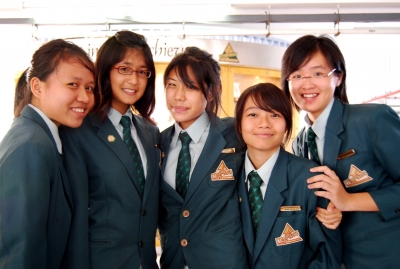Yesterday’s OECD’s PISA report, launched in London, detailed the results from the survey taken in 2015. The triennial survey tests around 540,000 15-year-old students in 72 jurisdictions in three main areas – science, reading and maths – as well as collaborative problem-solving and financial literacy.
Singapore outperformed the rest of the world in the survey which evaluates the quality, equity and efficiency of school systems via a two-hour test of students. Other high achievers were East Asian jurisdictions, including Hong Kong and Macao, while the performances of Canada, Denmark and Estonia were also notable.
Science
The focus of the survey rotates every three years – with science the focus in this instalment.
Singapore is the standout performer in the subject, with one in five students mastering the most advanced science. The country also outperforms the OECD average by far in each of the science categories assessed, and is 60 points ahead of the OECD average in the subject as a whole. With 40 points judged as equivalent to a year’s study, Singapore students could be said to be around 18 months ahead of their international peers.
However, in general the report on science is a little bleaker. It shows that while more students are seeking to pursue a career in science, the scientific breakthroughs over the past decade have not translated into higher science attainment in schools. Across the OECD, more than one in five students falls short in science, with some jurisdictions performing particularly badly.
Across the OECD, the gender gap is noticeable – boys are twice as likely to expect to work in science and engineering careers. While OECD General Secretary Angel Gurria said we typically blame the schools and workplace for this, he added that “it starts at home” but also that teachers should actively challenge gender stereotypes around science in schools.
UK performance
The UK’s scores have dropped in science, reading and maths compared to the findings of the last report, published in 2013. This means that despite being one of the world’s most advanced countries, we are still lagging behind and failing to improve in educational terms.
In a panel debate at the launch, an audience member from the University College London asked whether the UK now has a culture of reforming the education system, rather than evaluating measures after a period of time, once a change has had sufficient time to bed in. Russell Hobby the General Secretary of the NAHT warned against jumping to conclusions saying this can only be the start of the investigation and said we should “stick to it” with regards to the reforms made. He also noted how long it can take for the outcome of reforms to “flow through”.
In response to the UK’s lagging scores, the Government recalled the line of former Education Secretary, Michael Gove, from 2010, when he said that the reforms would take over a decade to bear fruit. But of course some will still see the results as a disappointment.
Despite the decline, it should be pointed out that the UK is rated as better than the OECD average in science and reading, and better than average for equity between boys and girls and for the social background of students.
Top performers
So what is common amongst those countries performing best in the survey? First, they have high and universal expectations for all students, a strong focus on great teaching, they target resources at struggling students and schools, and they are committed to coherent, long-term strategies.
On the back of its latest report, the OECD has made several policy recommendations. Primarily, there should be increased support to disadvantaged students and schools. In countries and economies where students in advantaged schools spend more time studying after school (such as in Croatia, Italy and Japan) governments may need to provide disadvantaged schools with additional resources such as tutors, to ensure equity. Secondly, all students would benefit from a more limited application of processes which sort students into different programme tracks. The OECD Secretary General also stated that for students, repeating grades does not work.
It is widely hoped that the next report will be more positive about the UK’s educational progress to ensure that particularly in the post-Brexit era, we are globally competitive. Ultimately, this will ensure that students in the UK have the best chance of reaching their full potential. With the Conservative government looking to roll out South Asian educational approaches such as the ‘maths mastery’ approach to teaching maths which is used in Shanghai and star-performer Singapore, perhaps we have reason to be optimistic.
Angel Gurria, OECD Secretary General said:
“Education is the single greatest tool for empowering people.”
“Achieving greater equality in education is not only a social justice imperative, it also fuels economic growth and promotes social cohesion.”




